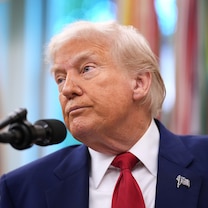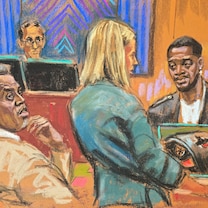Obama Deals With Cuba, Venezuela -- as Chavez Gives Him Book Assailing U.S.
Sees "new beginning" with Cuba. Venezuela's Chavez slips him book assailing U.S.
PORT OF SPAIN, Trinidad, April 18, 2009 — -- President Obama came to the Summit of the Americas pledging to "re-engage" with Latin America. He'd wanted to focus on the economy, energy, and security, but other issues ended up getting more attention as he shook hands with one of America's fiercest critics and called for a fresh start in relations with Cuba.
This dynamic played out today as President Obama met with the heads of state of the 12 countries of South America.
"I have a lot of learn and I very much look forward to listening and figuring out how we can work together more effectively," Obama said.
But in front of cameras, Venezuelan President Hugo Chavez made a point today of giving President Obama a copy of a 1971 book that assails the "pillaging" of Latin America by Europe and the United States, a book the White House indicated the mono-lingual president is unlikely to read.
"I think it's in Spanish, so that might be a tad on the difficult side," said White House Press Secretary Robert Gibbs.
This was the second stunt by Chavez, who despite tirades against the United States, expelling the U.S. ambassador from Venezuela in September, and calling Obama an "ignoramus" in March, rushed pictures of his first handshake with Obama onto his government's Web site Friday night, along with an account of how he expressed a desire to be friends with the new American president.
Chavez's actions are no accident, said Jeffrey Davidow, a senior advisor to President Obama on Latin American affairs.
"There is a sizeable population in Venezuela, probably the very vast majority of Venezuelans, who have a more favorable attitude to President Obama than they have to him," said Davidow.
Administration sources say that in their private 75-minute meeting, Chavez and the other 11 South American leaders pushed President Obama to lift the embargo against Cuba.
The president said the United States is on a path of changing the nature of the relationship with that country. This week, the United States lifted restrictions on travel, commerce and mail to Cuba.
Cuban President Raoul Castro said Cuba was willing to talk to the U.S. with everything on the table.
"We will continue to evaluate and watch what happens," said Gibbs. "We're anxious to see what the Cuban government is willing to step up and do."





